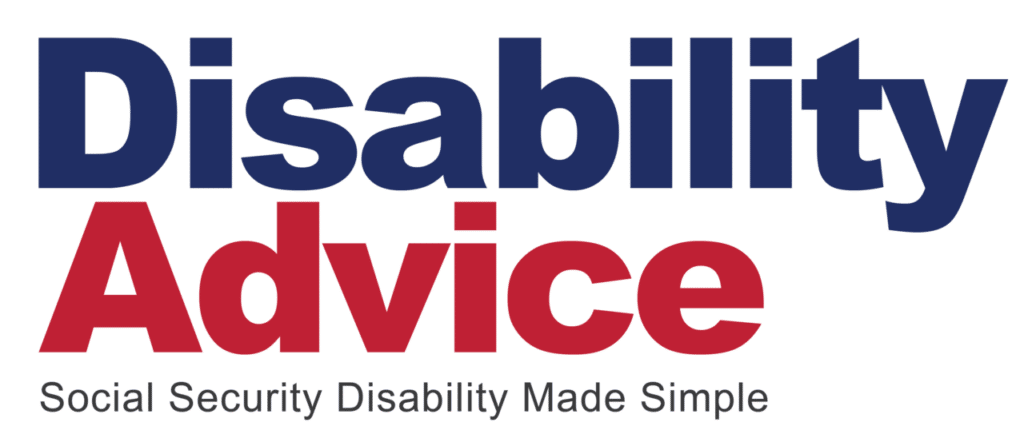Why Do Most People Get Denied For Disability?
The Social Security Disability Insurance program, or SSDI, is notorious for its high denial rate and complex claims process. While the Social Security Administration initially denies 70 percent of cases, appeals are still an option. Understanding the reasons for so many of these denials and how to avoid such errors is essential for getting your claim approved.
Our compassionate team is here to empower applicants like you to submit stronger claims and increase the likelihood of acceptance. Call our office today to learn more about why most people get denied for disability and how to begin building a compelling and solid case.
Common Reasons for SSDI Claim Denials
Several mistakes can lead to an SSDI claim denial. However, knowing these pitfalls and how to avoid them can increase the chances of success for your case.
Incomplete or Insufficient Medical Evidence
A lack of thorough medical documentation or failure to meet the SSA’s Listings of Impairments criteria for qualifying conditions often leads to denials. It is essential to submit all necessary evidence of your disabling condition, including doctor’s visits, official diagnoses, and a detailed record of its effects on your life.
Failure to Meet SSA’s Definition of Disability
Another standard error in the application process is failure to meet the SSA’s definition of disability. This strict definition requires that disability result from a medically determinable impairment that prevents the applicant from performing substantial gainful activity and is expected to last 12 months or more or result in death. Failing to meet the required duration or severity criteria can result in denial.
Inadequate Work History or Recent Earnings
Eligibility for SSDI requires sufficient work credits and a recent employment history. Many applicants with serious medical conditions are denied benefits because they do not meet these technical requirements.
You must have worked enough over a certain period and accrued sufficient work credits. You accrue these work credits by paying into the system through payroll taxes deducted from your paycheck. These requirements vary based on your age. Issues With Application Accuracy and Consistency
Errors, missing information, and inconsistencies in an application can raise red flags and ultimately lead to a denial. Your application must be accurate and truthful. Even minor inconsistencies can cause a rejection.
Noncompliance With Treatment or Medical Appointments
Missing doctors’ visits or failing to follow prescribed treatments can negatively impact a claim. Inconsistencies in your treatment may suggest that your condition is not as severe as claimed, that your symptoms could improve with proper care, or that you are not doing your part to manage the condition.
How the SSDI Claims Process Contributes to Denials
Different procedural factors and bureaucratic challenges lead to higher denial rates, including SSA backlog and stringent initial reviews.
SSA Backlogs
SSA backlogs are a significant issue that impacts denials. When there is a high volume of claims and understaffing, this creates delays at each stage of the process. As a result, applicants may lose access to medical care or discontinue treatment during these prolonged periods, which can negatively impact their claims.
In addition, SSA staff are under pressure to decide claims and reduce the backlog. Thus, they may miss details that are not spelled out or clearly demonstrated by your application. Submitting clear and complete information and evidence can ensure that the reviewer doesn’t miss any key details.
Initial Reviews
Similarly, the initial application review, handled by state agencies usually called Disability Determination Services, or DDS, evaluates each case using strict medical criteria from the SSA’s Listings of Impairments. Many applications are denied because the paperwork is incomplete, they lack sufficient medical evidence, or the condition does not meet the exact criteria, even if the disability unquestionably prevents the applicant from working.
Understanding SSA’s Listings of Impairments Criteria for Disability
The SSA’s Listings of Impairments plays a vital role in evaluating disability claims. It outlines the specific medical criteria that must be met to qualify for SSDI or SSI, which vary by condition.
For example, musculoskeletal system disorders must be characterized by nerve root compression, limited motion, and documented pain. Even if you do not meet a listing, you may still be approved if your condition is medically equivalent to a listed impairment, or your Residual Functional Capacity shows you cannot work due to your limitations.
Steps to Avoid Denial and Strengthen Your SSDI Claim
You can take proactive steps to reduce the risk of a denial and strengthen the overall viability of your SSDI claim.
Gather Comprehensive Medical Records and Documentation
Gather documentation to demonstrate the presence and severity of your disability, along with your employment history, such as the following:
- Medical records, such as doctor’s notes, test results, and hospitalizations
- Work history
- W-2s or tax returns
- List of medications and treatments
- Contact info for all health care providers
Work With Experienced Disability Advocates or Attorneys
Seek expert assistance from an advocate at Disability Advice or an attorney to file your claim. A professional will have the necessary tools and skillset to ensure your application is submitted correctly and supported with thorough evidence. They can manage your case from start to finish and file an appeal if needed.
Be Honest and Consistent Throughout the Process
Be transparent about your condition and work history throughout the application process. Provide accurate documentation and medical records detailing the impact of your disability on your personal and professional life. Dishonesty or inconsistencies can lead to delays and denials.
What To Do if Your Disability Claim Is Denied
If your claim is initially denied, you can take certain steps to win approval on appeal. For the best shot at success, be persistent and seek professional support to overturn a denial.
Reconsideration and Requesting a Hearing
The initial appeal stage involves reconsideration and requesting a hearing. The request must be submitted within 60 days of the denial. At the reconsideration level, a DDS employee not involved with the initial decision will review your application.
If your claim is denied on reconsideration, you must request a hearing within 60 days of that decision. In this step, you will appear before an Administrative Law Judge and present evidence of how your condition limits your ability to work.
Seeking Legal Representation for Appeals
An attorney can play a vital role in the appeals process, especially in collecting and presenting proof of your disability’s impact on your life. They can bring several key benefits to the table, including the following:
- Representation at hearings
- In-depth understanding of SSA rules
- Meeting deadlines and handling procedures
- The ability to build a claim based on strong medical evidence
- The ability to review errors in your initial denial and correct them
Frequently Asked Questions About Disability Denials
How Long Does It Take To Get a Disability Denial Decision?
Typically, you can expect an approval or denial decision within three to six months of the initial submission. The decision will come via mail from your local Social Security office or Disability Determination Services.
Can I Apply Again if My Claim Is Denied?
If your claim is denied, you have 60 days to appeal the decision. The SSA has a four-step appeal process, including reconsideration, a hearing before an Administrative Law Judge, Appeals Council Review, and Federal Court Review. If all else fails, you can always submit a new claim. However, that starts the process over.
What Evidence Will SSA Consider Most Important?
With your application, you must submit objective, consistent, and medically supported evidence showing that your condition prevents you from working. A disabling condition can be demonstrated through clinical notes, diagnostic test results, surgical or hospital records, treatment history, and medication records.
How Can I Improve My Chances Of Approval On Appeal?
To increase the likelihood of a successful appeal, you will want to identify the cause of your initial denial and correct it. Hiring an attorney or advocate can be a helpful way to ensure you don’t make the same errors twice when appealing. They can also help you to provide more sufficient medical evidence of your disability, especially if the lack of evidence played a role in the denial.
Why Do Most People Get Denied for Disability?
The SSDI claims process is complex, and the simplest mistake can easily lead to a denial. We urge you to seek expert guidance from Disability Advice to maximize your chances of a successful claim. Contact us today for a free consultation or claim review.
- Free case evaluation
- Assist with denied claims
- Ensure you have all documents
- Make the process easy for you
- Common Reasons for SSDI Claim Denials
- How the SSDI Claims Process Contributes to Denials
- Understanding SSA’s Listings of Impairments Criteria for Disability
- Steps to Avoid Denial and Strengthen Your SSDI Claim
- What To Do if Your Disability Claim Is Denied
- Frequently Asked Questions About Disability Denials
- Why Do Most People Get Denied for Disability?

“Professionalism at its best. From intake to getting my claim started, they are the ones you need. 100% recommend to everyone.”
Pablo P.

“Having never gone through this process before, it was very easy and straightforward. VERY professional and polite.”
Alan A.

“I had a great experience with my representative. She was very friendly and she made the process very easy. I’m glad I had the pleasure to work with her in filing my claim. She provided great customer service.”
Dana C.

“I was very nervous about reaching out for help with disability benefits. This experience was so much easier than what I thought it would be. They were understanding and supportive, and answered all of my questions. I would highly recommend them.”
Alice P.

“One of the best customer service experiences I have ever had. Patient and kind and couldn’t of made my experience better. Thank you for all the help.”
Jama M.

“I was very pleased and impressed by the advocate. I feel that my chances of receiving my disability benefits are more likely to come in a timely manner.”
Danny C.
Fill in the form below and let us know how we can help you!
"*" indicates required fields

“Professionalism at its best. From intake to getting my claim started, they are the ones you need. 100% recommend to everyone.”
Pablo P.

“Having never gone through this process before, it was very easy and straightforward. VERY professional and polite.”
Alan A.

“I had a great experience with my representative. She was very friendly and she made the process very easy. I’m glad I had the pleasure to work with her in filing my claim. She provided great customer service.”
Dana C.

“I was very nervous about reaching out for help with disability benefits. This experience was so much easier than what I thought it would be. They were understanding and supportive, and answered all of my questions. I would highly recommend them.”
Alice P.

“One of the best customer service experiences I have ever had. Patient and kind and couldn’t of made my experience better. Thank you for all the help.”
Jama M.

“The person I spoke with was very knowledgeable and very thorough with answering all of my questions and making sure all my information was correct. He was very patient, kind, and was very helpful. I wasn’t sure if I would qualify, and he checked and took all of my information. The process was made very easy, thank you so much for your help.”
Patrice I.


